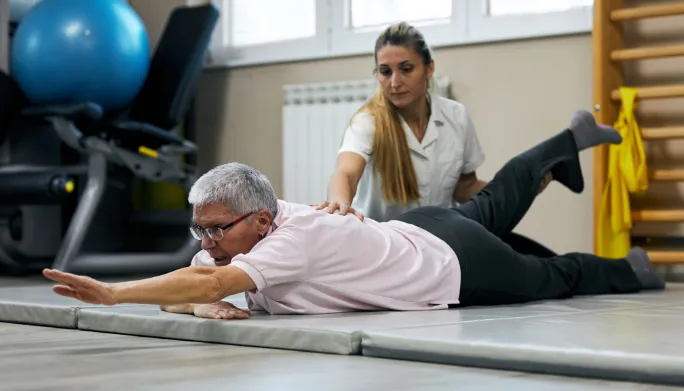Balance and Gait Disorders in Tarrytown

What are Balance and Gait Disorders?
Balance and gait disorders are conditions that affect a person’s ability to stand and walk steadily. These disorders can make simple tasks like walking, climbing stairs, or getting up from a chair challenging. Balance and gait are essential for our everyday activities, and when they are impaired, it can lead to accidents and injuries.
Common Balance and Gait Disorders
There are several common balance and gait disorders that people may experience:
1. Vertigo
Vertigo is a feeling that you or your surroundings are spinning or moving when you’re actually still. It can be caused by inner ear problems, blood pressure variations, or issues in the brain.
2. Dizziness
Dizziness can make you feel lightheaded or unsteady. It can result from various factors, including low blood pressure, dehydration, or ear problems.
3. Ataxia
Ataxia is a condition that affects coordination and balance. It often stems from damage to the cerebellum, a part of the brain that controls movement.
4. Parkinson’s Disease
Parkinson’s disease is a progressive neurological disorder that can cause tremors, muscle stiffness, and difficulties with balance and coordination.
5. Peripheral Neuropathy
Peripheral neuropathy is a condition that damages the nerves in the extremities, leading to numbness, weakness, and difficulties with balance.
How Do You Know if You Have a Balance or Gait Disorder?
Here are some common signs and symptoms to look out for:
Dizziness or Unsteadiness: Feeling like you might fall or lose your balance.
Difficulty Walking: Trouble with walking smoothly, often characterized by a shuffling or unsteady gait.
Frequent Falls: A higher risk of falling, even during routine activities.
Vertigo or Spinning Sensation: A sensation that you or your surroundings are moving when they are not.
Numbness or Weakness: Feeling a lack of sensation or strength in your legs or feet.
Poor Coordination: Difficulty with tasks that require precise movements, like picking up small objects.
What Causes Balance and Gait Disorders?
Balance and gait disorders can be caused by various factors, including:
1. Inner Ear Problems
Issues with the inner ear, such as infections or disorders like Meniere’s disease, can affect balance.
2. Neurological Conditions
Conditions like stroke, multiple sclerosis, and Parkinson’s disease can impact the brain’s control over balance and coordination.
3. Musculoskeletal Problems
Muscle, joint, or bone problems can affect your ability to maintain balance.
4. Medications
Certain medications may have side effects that cause dizziness or unsteadiness.
5. Age
As we get older, our muscles and joints can weaken, increasing the risk of balance and gait issues.
How Can Balance and Gait Disorders Be Treated?
Treatment for balance and gait disorders depends on the underlying cause. Here are some common approaches:
1. Physical Therapy
Physical therapy can help improve strength, coordination, and balance through specific exercises and techniques.
2. Medications
Medications can sometimes be prescribed to manage symptoms or address underlying conditions.
3. Assistive Devices
Devices like canes, walkers, or braces can provide added stability and support when walking.
4. Lifestyle Changes
Adjusting your daily routine and the space you are in, like adding handrails in your home, can help prevent falls.
How Can You Prevent Balance and Gait Disorders?
Preventing balance and gait disorders involves taking steps to reduce your risk factors:
Stay Active: Regular physical activity helps maintain muscle strength and coordination.
Check Medications: Discuss potential side effects with your doctor if you’re taking medications.
Stay Hydrated: Proper hydration can help prevent dizziness and lightheadedness.
Get Regular Check-ups: Visit your healthcare provider regularly to catch and address issues early.
Safety at Home: Make your home safer by removing tripping hazards and adding handrails as needed.
Understanding Balance and Gait Disorders
Balance and gait disorders can affect people of all ages and significantly impact their daily lives. Recognizing the signs and symptoms early and seeking appropriate medical care is crucial for managing these disorders effectively. With the proper treatment and preventive measures, individuals can improve their balance and regain confidence in walking and daily activities.
If you or someone you know is experiencing balance or gait problems, consult a healthcare professional for a proper evaluation and personalized treatment plan. Remember that maintaining good balance and gait is essential for a healthy and active life!


